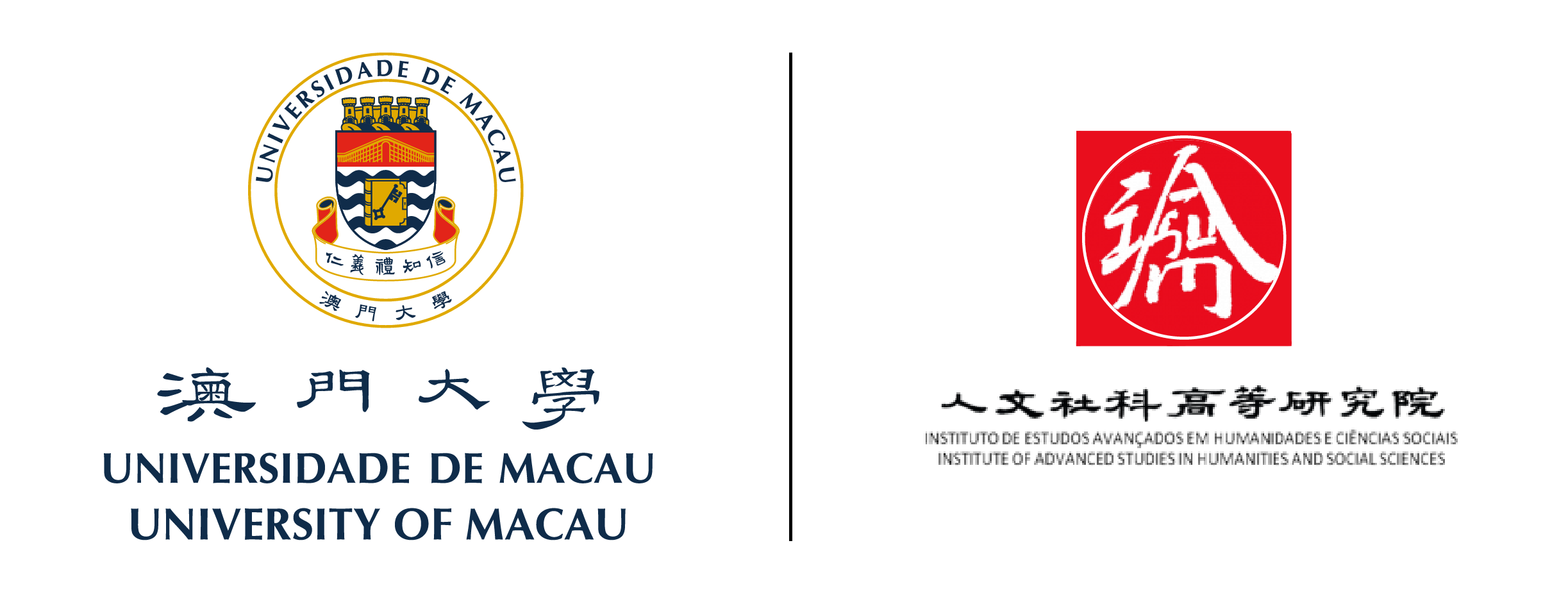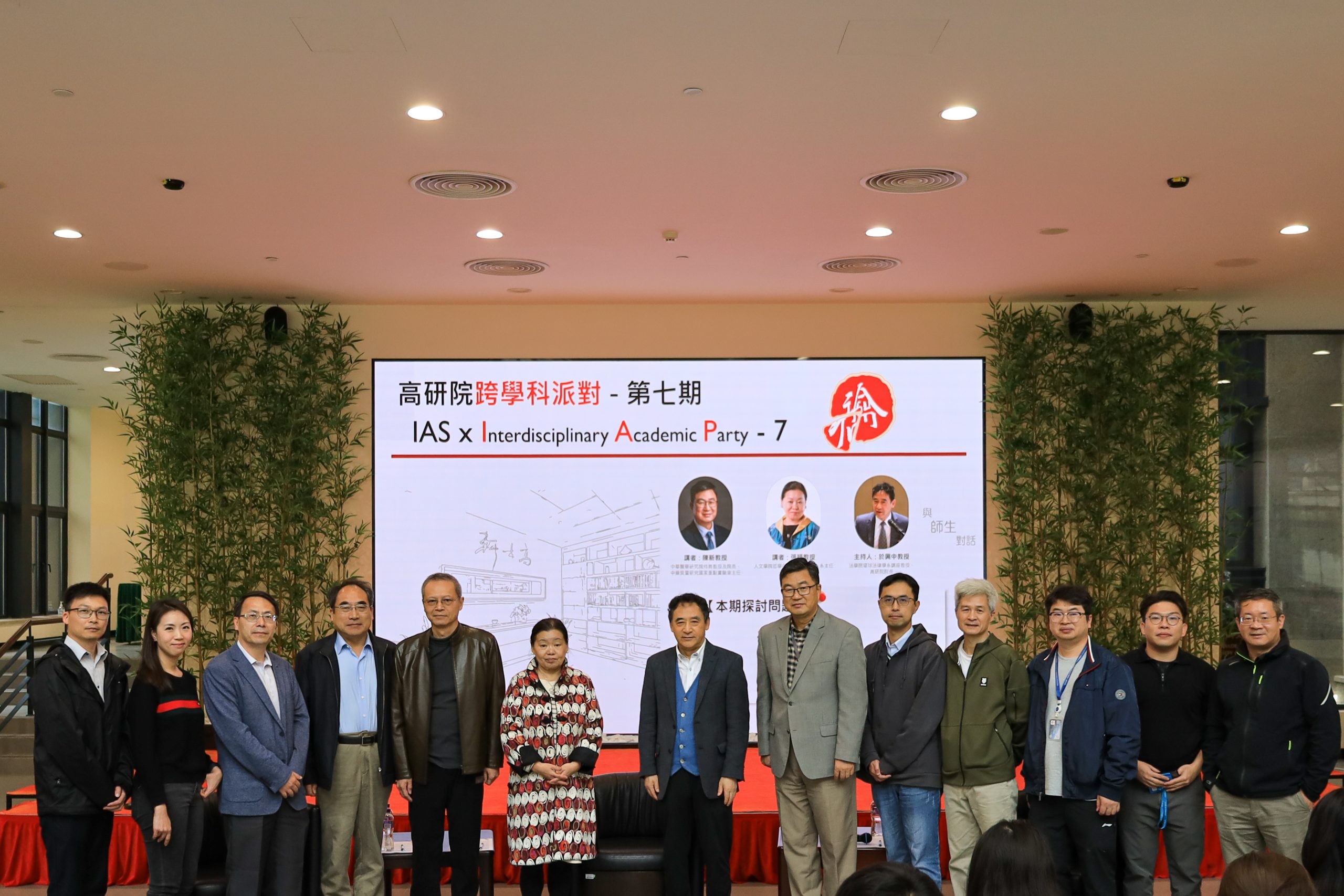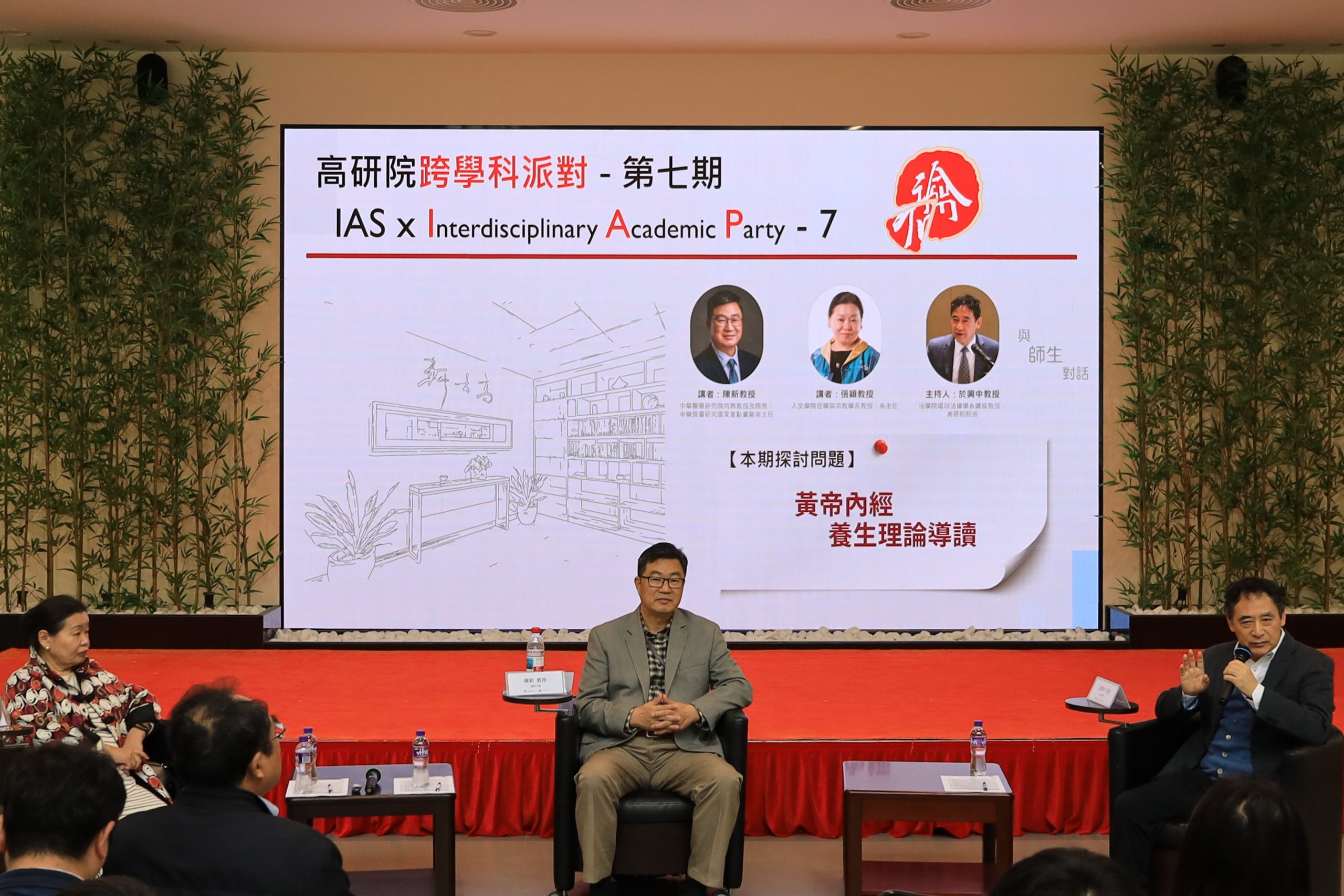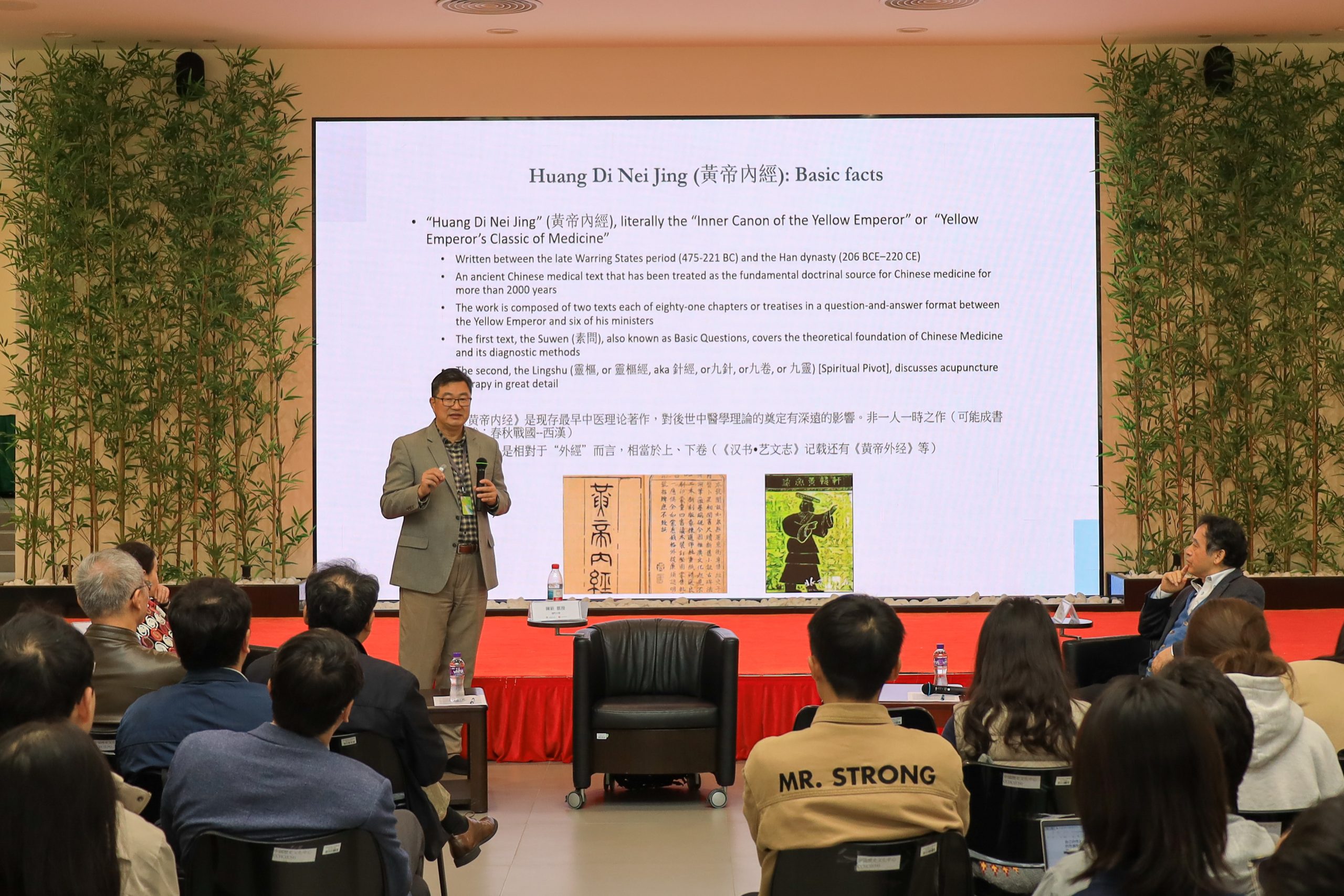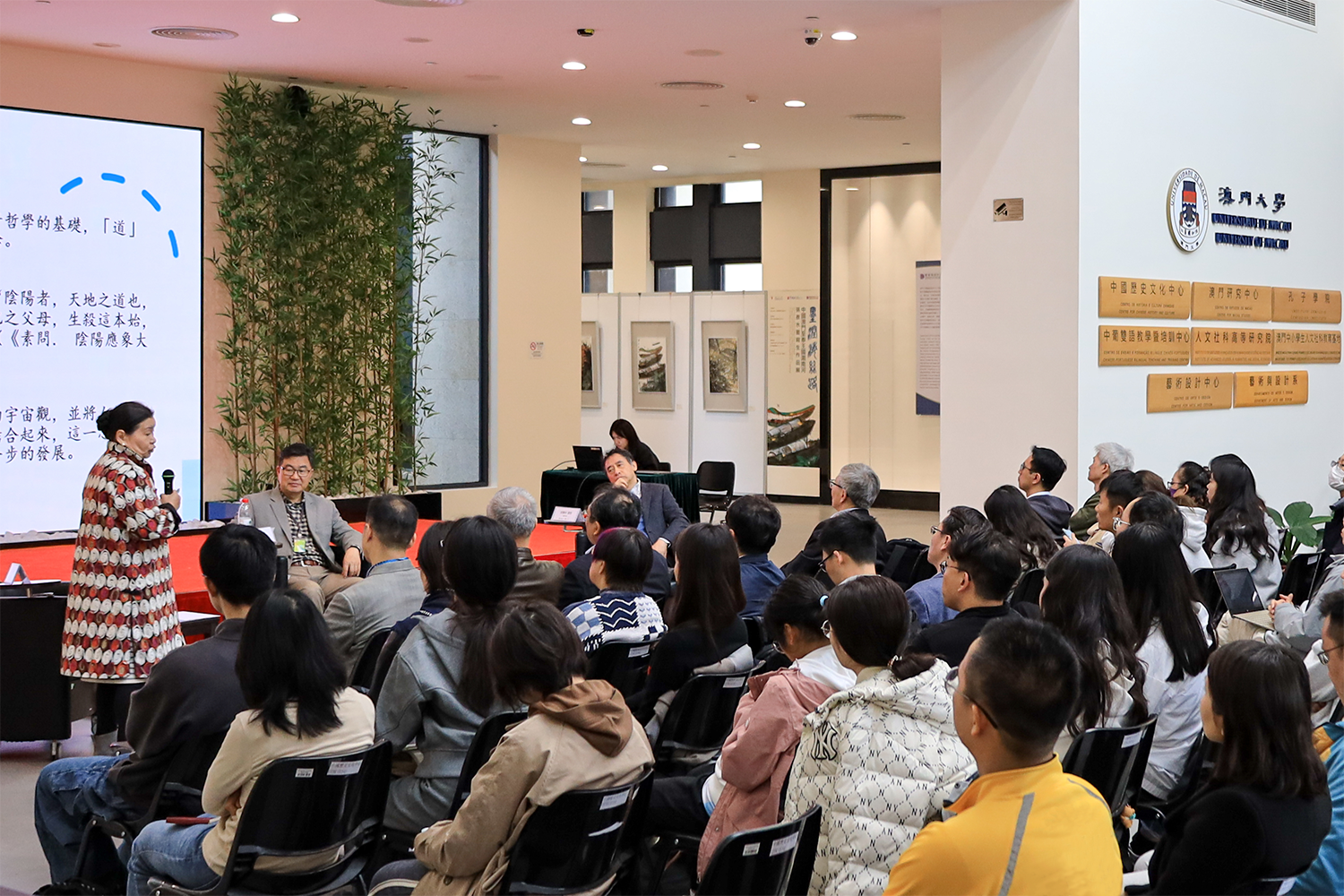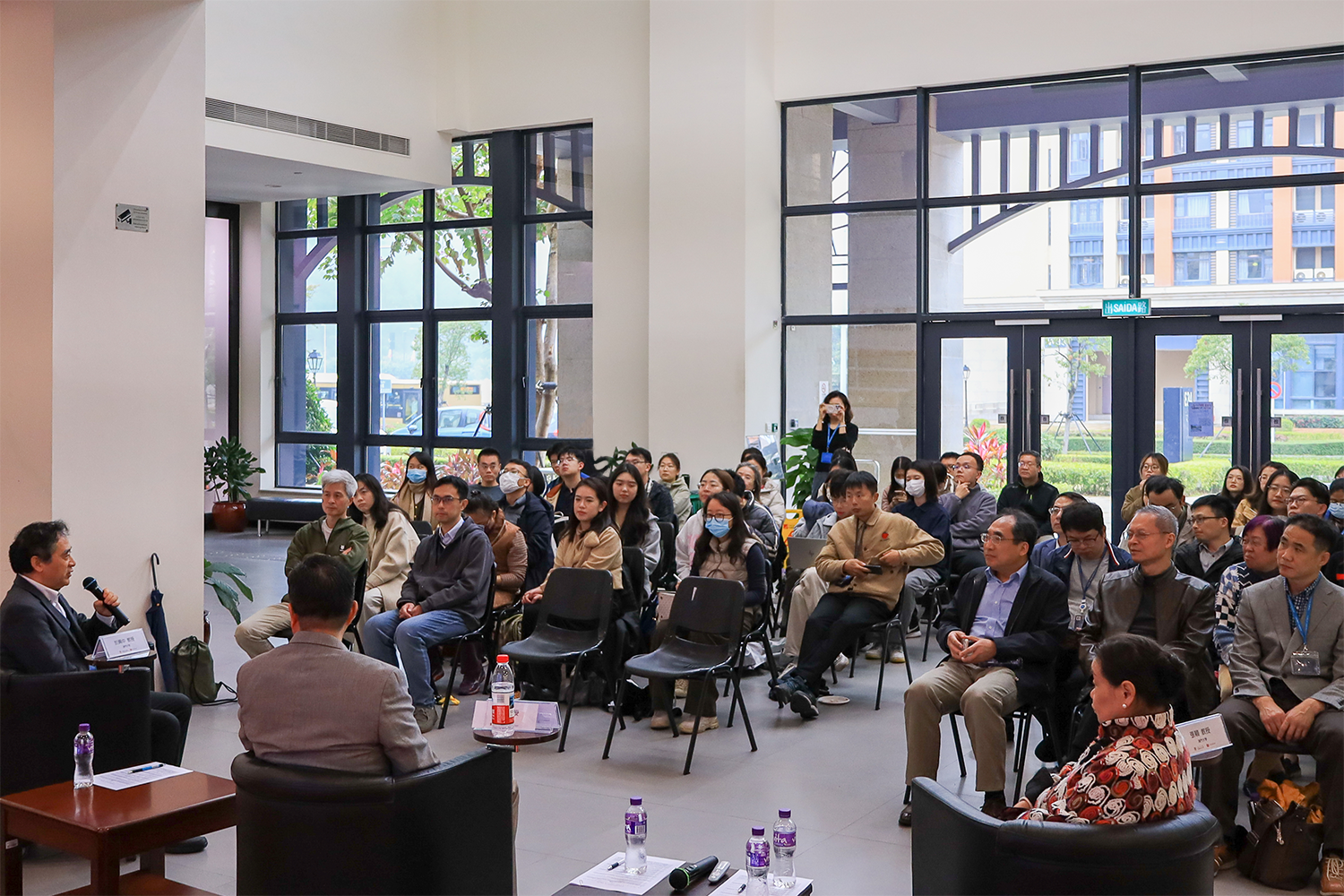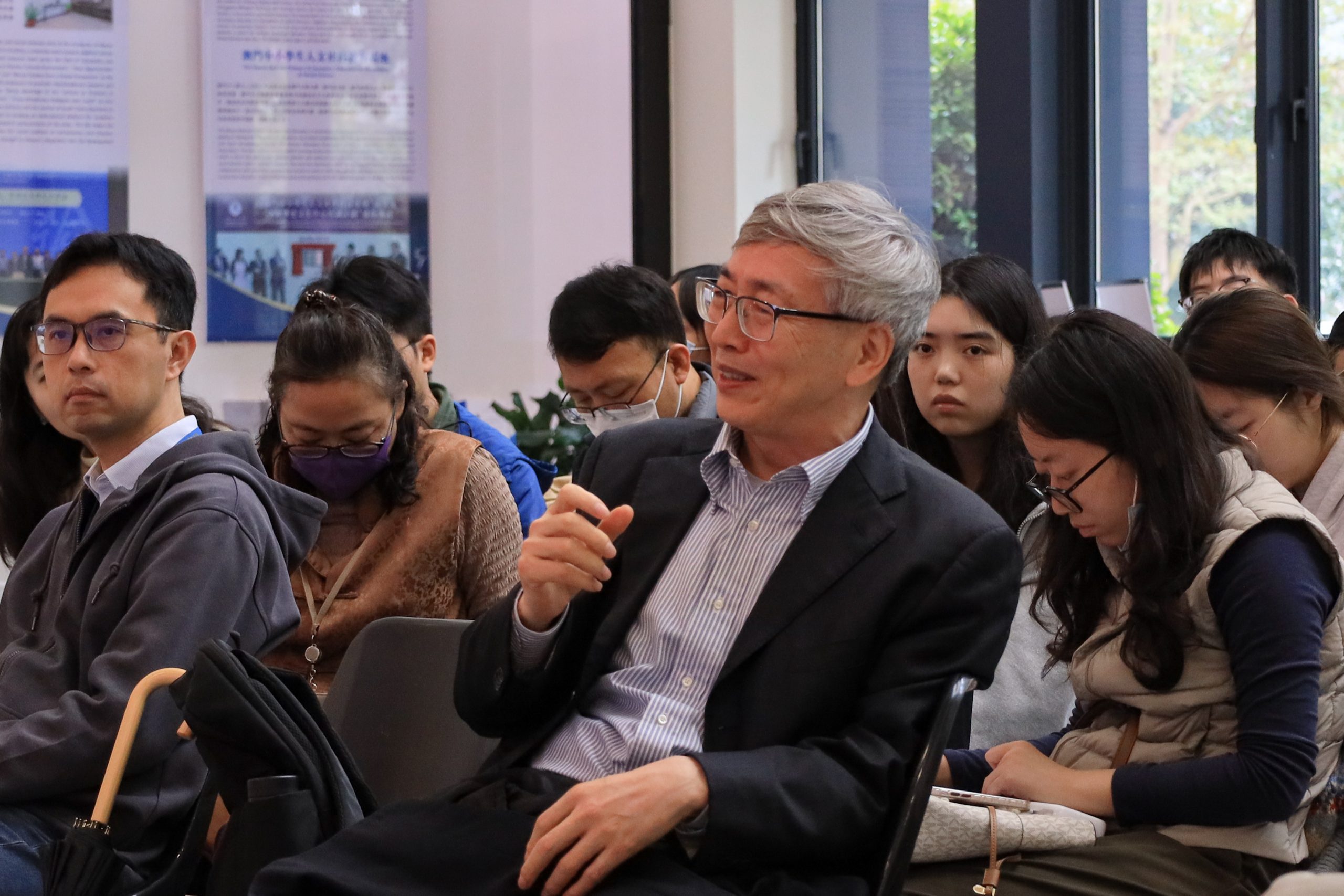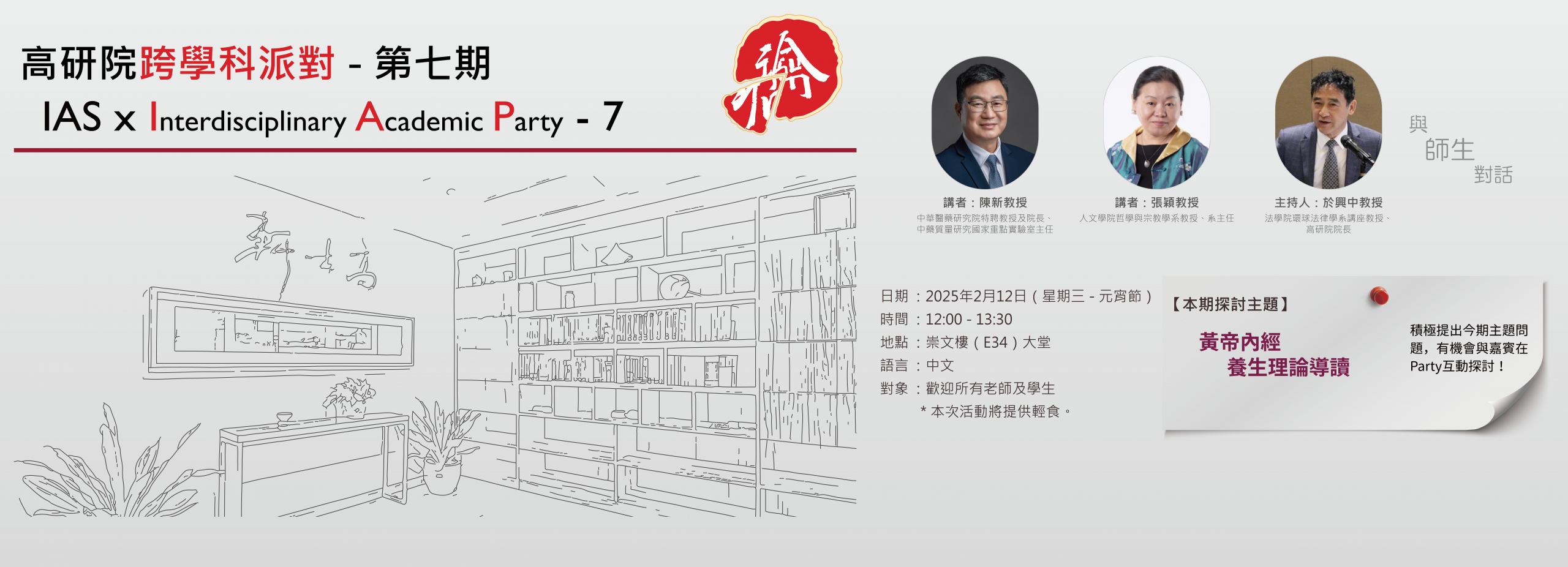
On February 12, the seventh session of the “IAS X Interdisciplinary Academic Party,” co-organized by IAS, the Institute of Chinese Medical Sciences, and the Faculty of Arts and Humanities, was successfully held in the lobby of the Cultural Building. The theme of this session was “Huang Di Nei Jing: An Introduction to Regimen Theory,” featuring Prof. Xin Chen, Distinguished Professor and Director of the Institute of Chinese Medical Sciences, Director of State Key Laboratory of Quality Research in Chinese Medicine (University of Macau), and Prof. Ellen Zhang, Professor of FAH and Head of Department of Philosophy and Religious Studies, as the speakers. The event was moderated by Prof. Xingzhong Yu, Director of IAS and Chair Professor of FLL.
At the beginning, Prof. Chen provided insights into the principles of Yin-Yang harmony, dietary moderation, exercise, and natural alignment. Integrating modern research, he highlighted how balanced nutrition and physical activity enhance immunity, while emphasizing the essential role of sleep in immune function. He further explored traditional Chinese medicine’s immunomodulation mechanisms, particularly their scientific relevance in the context of COVID-19, bridging ancient wisdom with contemporary science.
Prof. Zhang delved into the philosophical thought of Huang Di Nei Jing, highlighting the holistic medical view rooted in Yin-Yang dynamics and the preventive treatment concept. She mentioned Taoist cosmology, illustrating how the human body, as a microcosm, aligns with natural rhythms, and compared traditional health ideals with WHO’s modern definition. The talk also explored Taoist practices like nurturing Jing-Qi-Shen and sex techniques, reflecting traditional Chinese medicine’s pursuit of life harmony.
In the subsequent Q&A session, faculty and students actively posed questions, engaging in discussions on youth skepticism toward traditional Chinese medicine, modern applications of Huang Di Nei Jing, and regimen practices. The lively and in-depth academic exchange demonstrated a vibrant atmosphere of interdisciplinary interaction.
The IAS Interdisciplinary Academic Party series aims to foster academic interaction and interdisciplinary exchange within the university, encouraging scholars from diverse fields to collaboratively explore global academic issues. This session attracted nearly 90 faculty members and students from diverse academic backgrounds, facilitating exchanges between the humanities and medical fields while providing participants with an opportunity to explore traditional Chinese medicine and regimen theory in depth.

